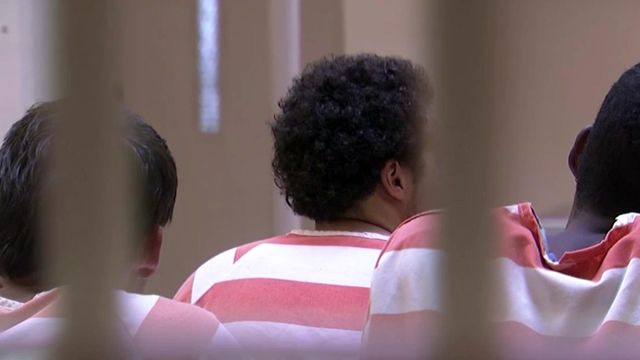Putting 'raise the age' plan in state budget doesn't end funding concerns
Despite being included in the proposed $23 billion state budget, a plan to end North Carolina's practice of routinely trying 16- and 17-year-olds as adults continues to be plagued by funding questions.
Posted — UpdatedNorth Carolina is the only state to try all 16- and 17-year-olds as adults, but the "raise the age" provision would push almost all of those cases into the state's juvenile court system by the end of 2019. Teens charged with violent felonies would still be prosecuted as adults.
"These are crimes that are low level, and the sense is that kids can really be rehabilitated from those crimes, and the data shows us they can go on to lead successful lives after receiving some sort of discipline for those actions," said Susanna Birdsong, state policy counsel for the American Civil Liberties Union.
Backers say keeping teens out of adult prison lessens the chance they will become hardened criminals and also keeps the stain of an arrest as a youth off their permanent record.
"Things like accessing college financial aid, getting a job, getting housing, serving in the military, any number of things going forward are going to be much easier for them," Birdsong said. "I think it recognizes that 16- and 17-year-olds are kids and make mistakes and shouldn't have to spend the rest of their lives paying for those mistakes."
In addition to earmarking about $1 million over the next two years for planning and administrative costs, the budget includes $13.2 million to build a youth detention facility in Rockingham County.
Yet, some people remain concerned that diverting thousands of teens into an already strained juvenile justice system will create problems unless more resources – judges, prosecutors, counselors and detention beds – are available.
"I'm cautiously optimistic, but where’s the money going to come from?" Wake County Sheriff Donnie Harrison said. "I think that’s the key."
About 35 16- and 17-year-olds wind up in the Wake County jail every day, Harrison said.
"The juvenile counselors stay busy, and putting another burden on them I don’t think is fair, and I don’t think it will work," he said.
Peg Dorer, director of the North Carolina Conference of District Attorneys, noted that juvenile cases are more intensive because they are geared toward rehabilitation and not merely punishment.
"We are very concerned that we do not have the resources to do the job that they are expecting us to do," Dorer said in a statement.
"I am hopeful the legislature will use the money in the budget they appropriated to study the impact to then be able to assess and fund resource needs," Wake County District Attorney Lorrin Freeman said in a statement. "Having said that, I believe generally that raising the age on non-violent offenses is good public policy."
Related Topics
• Credits
Copyright 2024 by Capitol Broadcasting Company. All rights reserved. This material may not be published, broadcast, rewritten or redistributed.






